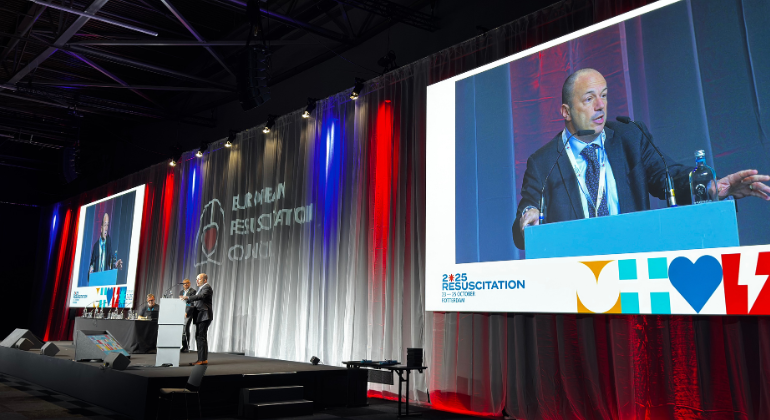Kidney Damage in First Responders Linked to September 11
For the first time, researchers have linked high levels of inhaled particulate matter by first responders at Ground Zero to kidney damage.
For the first time, researchers have linked high levels of inhaled particulate matter by first responders at Ground Zero to kidney damage. Researchers from the WTC-CHEST Program, a subset of the World Trade Center Health Program Clinical Center for Excellence at Icahn School of Medicine at Mount Sinai, presented their new findings at the 2013 American Society of Nephrology meeting on Nov. 9 during National Kidney Week.
After the 9/11 tragedy, first responders at Ground Zero were exposed to varying levels of a dust cloud of air filled with cement dust, smoke, glass fibers, and heavy metals. The WTC-CHEST Program at Mount Sinai has previously linked this particulate matter exposure to lung and heart abnormalities. However, its effects on the kidney health of first responders have never been explored until now.
In their new study, Mount Sinai researchers examined urine samples of 183 first responders exposed to particulate matter at Ground Zero taking into account each first responder's time of arrival, proximity, duration, and level of exposure at Ground Zero. To assess their kidney damage, researchers measured the level of the protein called albumin in their urine, which when this main blood protein is found in urine it is abnormal and an indicator of renal damage. Research results show a significant link between a high level of exposure to particulate matter by first responders at Ground Zero and the increased level of the protein albumin in their urine.
''Our study shows the first responders with the highest exposure to the 9/11 particulate matter had significantly greater levels of albumin in their urine than the first responders in the study with low exposure levels,"says Mary Ann McLaughlin, MD, principal investigator for the WTC-CHEST Program at Icahn School of Medicine at Mount Sinai who also serves as medical director of the Cardiac Health Program and co-director of the Women's Cardiac Assessment and Risk Evaluation Program at The Mount Sinai Hospital. ''We believe high exposure to the massive dust cloud of air pollution at Ground Zero may have extremely inflamed the endothelial lining of blood vessels leading to the kidneys causing kidney malfunction and the development of kidney damage in first responders."
Albumin may leak into the urine when kidney function is compromised from inflammation or kidney damage. When albumin starts to spill incorrectly into the urine it is called ''albuminuria”. A high-level of albuminuria can signal kidney disease from diabetes, high blood pressure, heart failure, and kidney inflammation. Standard medical assessments test for albuminuria to catch kidney disease early. When kidney disease progresses, it can lead to kidney failure, kidney dialysis, or even potentially a kidney transplant.
''We observed a statistically significant and independent relationship between first responder's high exposure to particulate matter and albuminuria,"says Dr. McLaughlin. ''Our novel research findings will pave the way for the future early diagnosis and care of these first responders' impaired kidney health. Also, in addition, it will lead to further exploration of the impact of environmental exposures and inflammation in the pathogenesis of albuminuria.”
This research study was funded by the Centers for Disease Control and Prevention (CDC) and the National Institute of Occupational Safety and Health (NIOSH).
Dr. McLaughlin is the principal investigator for the WTC-CHEST Program at Mount Sinai evaluating the effects of exposure in WTC responders 10-13 years following the events of 9/11. Prior studies have described persistent pulmonary and heart function abnormalities in a significant portion of responders. The research studies seek to further examine the relationship between pulmonary and cardiac function abnormalities, other markers of chronic cardiopulmonary disease, kidney dysfunction, and further elucidate the pathophysiologic effects of exposure to inhaled particulate matter on 9/11. This study will provide critical information regarding risk of exposure to particulate matter, risk factors for disease and potential for improvements in diagnosis and treatment.
The WTC Health Program, Clinical Center of Excellence at Mount Sinai is a treatment and monitoring program for emergency responders, recovery workers, residents, and area workers who were affected by the terrorist attacks in New York City on September 11, 2001. The program identifies mental and physical health problems needing timely treatment; evaluates the health of first responders; monitors the development of symptoms; and researches the effects of 9/11 through data collection and analysis. Located at Mount Sinai and several other clinics in the tri-state area, the Clinical Centers of Excellence and Data Centers are the result of the James Zadroga 9/11 Health and Compensation Act, which provides $4.3 billion in federal funding to serve the health needs of the brave men and women impacted by the WTC tragedy.
About the Mount Sinai Health System
Mount Sinai Health System is one of the largest academic medical systems in the New York metro area, with 48,000 employees working across seven hospitals, more than 400 outpatient practices, more than 600 research and clinical labs, a school of nursing, and a leading school of medicine and graduate education. Mount Sinai advances health for all people, everywhere, by taking on the most complex health care challenges of our time—discovering and applying new scientific learning and knowledge; developing safer, more effective treatments; educating the next generation of medical leaders and innovators; and supporting local communities by delivering high-quality care to all who need it.
Through the integration of its hospitals, labs, and schools, Mount Sinai offers comprehensive health care solutions from birth through geriatrics, leveraging innovative approaches such as artificial intelligence and informatics while keeping patients’ medical and emotional needs at the center of all treatment. The Health System includes approximately 9,000 primary and specialty care physicians and 10 free-standing joint-venture centers throughout the five boroughs of New York City, Westchester, Long Island, and Florida. Hospitals within the System are consistently ranked by Newsweek’s® “The World’s Best Smart Hospitals, Best in State Hospitals, World Best Hospitals and Best Specialty Hospitals” and by U.S. News & World Report's® “Best Hospitals” and “Best Children’s Hospitals.” The Mount Sinai Hospital is on the U.S. News & World Report® “Best Hospitals” Honor Roll for 2025-2026.
For more information, visit https://www.mountsinai.org or find Mount Sinai on Facebook, Instagram, LinkedIn, X, and YouTube.

Scientists Develop a Smarter mRNA Therapy That Knows Which Cells to Target
Dec 15, 2025 View All Press Releases
Mount Sinai Study Finds PTSD May Accelerate Brain Aging in 9/11 Responders
Dec 08, 2025 View All Press Releases
A Specific Human Gene Can Help the Heart Repair Itself From Heart Attack or Heart Failure
Nov 03, 2025 View All Press Releases
Mount Sinai Study Reveals Genetic Clues Explaining Why Obesity Affects People Differently
Sep 15, 2025 View All Press Releases





